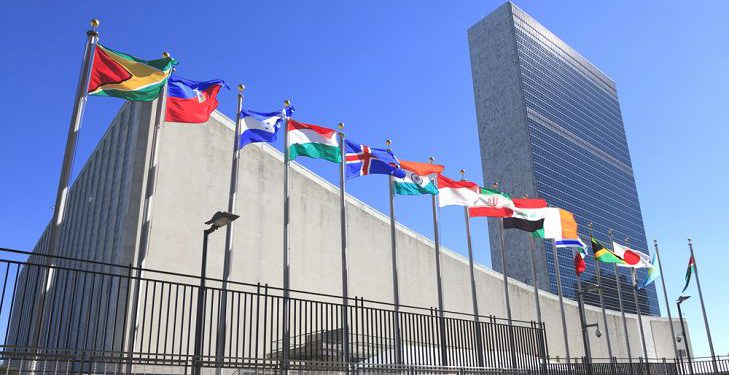Basseterre, St. Kitts, September 27, 2019 (SKNIS): As the 74th Session of the United Nations General Assembly (UNGA) draws to a close at the UN Headquarters in New York, and after five summits, and the debates of 193 sovereign states, much is still desired to achieve the UN’s 2030 17 Sustainable Development Goal’s (SDGs).
The United Nations High-Level Week (21-27 September) included the Climate Action Summit, the SDG Summit, the High-Level Meeting on Universal Health Coverage, the High-Level Dialogue on Financing For Development and the High-Level Midterm Review of the Samoa Pathway.
But as world leaders gathered at the United Nations Headquarters to make their contributions on accelerating action to respond to the climate emergency and to safeguard the socio-economic well-being of people everywhere, Greta Thunberg, a 16-year-old Swedish Environmental Activist, stunned world leaders when she addressed the Climate Youth Summit on September 21, which was designed for leaders who are driving climate action to showcase their solutions and to meaningfully engage with decision-makers on the defining issue of our time.
“You lied to us. You gave us false hope. You told us the future was something to look forward to. And the saddest thing is that most children are not even aware of the fate that awaits us. We will not understand it until it’s too late. And yet we are the lucky ones. Those who will be affected the hardest are already suffering the consequences. But their voices are not heard,” she said.
After four years of many international agreements on climate change and sustainable development, the stakes still remain high.
According to a UN Report, the world is not yet on track to end poverty by 2030 and world hunger is on the rise, with some 821 million people experiencing undernutrition in 2017. The report also raises concerns that green-house gases continue to climb and that every day that action is delayed on curbing green-house gases, it will make it more difficult to limit global warming to 1.5 degrees Celsius and stave off the worst impacts of climate change.
The UN Report also makes it pellucid that it’s the world’s most vulnerable that stand the most to lose—they are the ones bearing the brunt of conflict, inequality, injustice and environmental degradation. Statistics from the UN reveal that 70 million people fled war, persecution and conflict in 2018; at least 50 percent of the world’s population do not have access to essential health services; 18 percent of ever-partnered women and girls aged 15 to 49 years have experienced physical and/or sexual partner violence in the past year, and some 29.3% of the population of small island states live at less than five meters above rising sea-levels—they are the ones most threatened.
Concerted action is needed to address these challenges and actions must speak louder than words. The world needs moral leaders, leaders who will come together, who will work together with the private sector, civil society and international organizations for the betterment of our planet and the achievement of the Sustainable Development Goals.
As Secretary General of the United Nations, António Guterres, said at the opening of UNGA74 it is only “a networked and inclusive multilateralism will help us overcome the challenges of our current era.”







